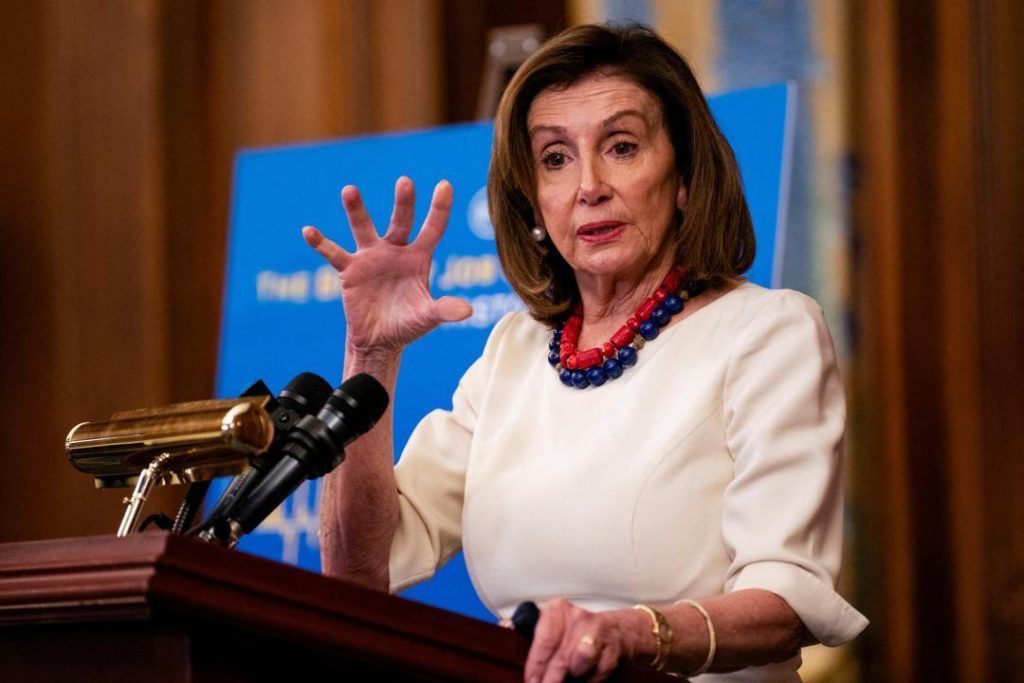
What is PELOSI Act & why is it named after former US Speaker Nancy Pelosi?
The Preventing Elected Leaders from Owning Securities and Investments (PELOSI) Act, reintroduced by US Senator Josh Hawley, aims to prohibit lawmakers and their spouses from holding or dealing in stocks while holding office. The Act is a response to the growing concerns about the potential for conflicts of interest and the perception of favoritism in the US political system.
The PELOSI Act is not only about preventing lawmakers from engaging in insider trading or manipulating the stock market but also about restoring the public’s trust in the political system. The Act is named after former US Speaker Nancy Pelosi, who enjoyed significant stock market gains during her term as Speaker.
Nancy Pelosi’s stock market gains
During her tenure as Speaker of the House, Nancy Pelosi and her husband, Paul Pelosi, made substantial profits from their investments in stocks and other securities. In 2019, it was reported that the Pelosis had made a whopping $5 million in profits from their investments in 2018 alone. This has raised questions about whether Pelosi’s influence as Speaker of the House contributed to her family’s financial gains.
The PELOSI Act is an attempt to prevent similar conflicts of interest from arising in the future. The Act would prohibit lawmakers and their spouses from holding or dealing in individual stocks, bonds, or other securities. Instead, they would be allowed to invest in mutual funds, exchange-traded funds (ETFs), and Treasury bonds.
How the PELOSI Act would work
Under the PELOSI Act, lawmakers and their spouses would be prohibited from:
- Holding or dealing in individual stocks, bonds, or other securities
- Buying or selling securities based on non-public information
- Using their position to influence the stock market or manipulate the value of securities
However, lawmakers would be allowed to invest in:
- Mutual funds, which pool money from many investors to invest in a diversified portfolio of stocks, bonds, or other securities
- Exchange-traded funds (ETFs), which are traded on stock exchanges like individual stocks but track a particular index or sector
- Treasury bonds, which are backed by the full faith and credit of the US government
The PELOSI Act would also require lawmakers and their spouses to disclose their investments in these restricted instruments annually.
Why the PELOSI Act is necessary
The PELOSI Act is necessary because the current system allows lawmakers to use their position to influence the stock market and manipulate the value of securities. This can create conflicts of interest and undermine the public’s trust in the political system.
For example, lawmakers who own stock in a company that is being considered for government funding or regulation may be tempted to use their influence to benefit their own financial interests. This can lead to a situation where lawmakers are more concerned with their own financial gains than with serving the public interest.
The PELOSI Act would help to prevent these conflicts of interest by prohibiting lawmakers from engaging in insider trading or manipulating the stock market. It would also help to restore the public’s trust in the political system by ensuring that lawmakers are not using their position to benefit their own financial interests.
Conclusion
The PELOSI Act is an important step towards preventing conflicts of interest and restoring the public’s trust in the political system. By prohibiting lawmakers and their spouses from holding or dealing in individual stocks, bonds, or other securities, the Act would help to prevent the kind of insider trading and manipulation that can undermine the public’s trust in government.
The Act is named after Nancy Pelosi, who enjoyed significant stock market gains during her term as Speaker of the House. While Pelosi’s gains were not illegal, they have raised questions about whether her influence as Speaker contributed to her family’s financial gains.
Ultimately, the PELOSI Act is about ensuring that lawmakers are serving the public interest, not their own financial interests. It is an important step towards restoring the public’s trust in the political system and ensuring that government is accountable to the people, not just the wealthy and powerful.



